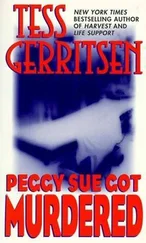My sympathies were aroused. The Major, after all, had no doubt come to Venice hoping, just like me, for a little innocent entertainment, but unlike me had failed to find it. I felt I should do what I could to raise his spirits. In a sense, it is true, it was his own fault: any hopes he might have had of success had been reduced, by his wearing of Bermuda shorts, from the small to the minuscule. On the other hand, I thought, it might be argued that it did him credit to wear a garment which so immediately revealed the frightfulness of his spider-like legs: an unscrupulous man would have tried to keep them concealed until the point at which a well-bred woman would feel embarrassment at withdrawing in revulsion.
“Cheer up, Bob,” I said briskly. “The news can’t be that bad.”
“Just looking at the jolly old investments,” said the Major. “I’ve saved a quid or two from time to time and a chap I know told me to buy some shares. Down again as per usual. Got to expect it, I suppose, with this Socialist shower running the show.”
“The Major,” said Selena, “must have been singularly unlucky in his choice of investments. The Stock Market is at its highest for five years.”
I pointed out that the decline in his investments would give him an excellent opportunity to establish a loss for capital gains tax purposes; but he seemed unwilling to perceive the advantages of this. Having undertaken, however, the task of cheering him up, I persisted with it until dinner, sparing only a moment to add a postscript to my letter to you and consign it to the evening post.
My efforts to improve the Major’s spirits were rewarded with such success that by the end of dinner he raised again the matter of the rug-cutting expedition. This put me in a dilemma. The only places I had seen where there might be dancing were nightclubs which looked to me formidably expensive; if I permitted the Major, in such an establishment, to bear the whole expense, it would be so enormous as to place me under obligations of an unmentionable nature. To avoid this, I should have to contribute equally; but to spend a large sum of money in order to shuffle round an over-crowded room in distasteful proximity to such a man — well, there were limits to my benevolence.
“Bob,” I said, “you can’t really want to spend the evening in a stuffy nightclub. I have noticed a most attractive little bar only a few minutes away, where we could sit out of doors and drink coffee and grappa —don’t you think that would be much more amusing?”
The bar to which I actually took the Major may not have been quite the bar to which I had intended to take him. Any route one follows in Venice is of necessity devious: alleyways which seem to lead in one direction, finding themselves interrupted by an unexpected canal, turn round and go somewhere entirely different; it is always possible — but never certain — that the bridge you are crossing is the same bridge that you crossed five minutes ago. Still, whether it was the right bar or the wrong bar, it was a perfectly good place to drink grappa and coffee.
Perceiving that we were close to the Teatro Fenice and somehow feeling that the responsibilities of guide still rested on my shoulders, I was anxious to tell the Major something of the building’s history and significance; but Ragwort’s guide book was unhelpful.
“You will observe,” I said, “that the date over the door is 1792. We may confidently assume, therefore, that the Theatre was the scene of very few of the comedies and musical entertainments for which Venice was celebrated in the eighteenth century. Beyond that, I can tell you nothing: the guide book refrains from any account of it.”
“Never mind, m’dear,” said the Major. “Can’t always rely on guide books, can you?” His tone was sombre, as if the remark had some deeper, possibly metaphysical significance. “Still,” he added, “not your fault, m’dear.”
Among the many defects in the state of things which people have from time to time considered to be my fault — but which you have always kindly explained were not my fault at all — the inadequacy of guide books has not so far been included. Still, I answered that it was kind of him to say so.
He continued to speak of his financial position, giving me to understand that in spite of the decline in his investments he had done not too badly for himself and was quite comfortably fixed. 1 made congratulatory comment.
I would think it odd, he said, that he had never married. I did not in fact think it at all odd — the statistical chances against any woman being prepared to endure both the hairiness of his legs and the tedium of his conversation seemed to me to be negligible. 1 did not express this view, but said sympathetically that the military life must be difficult to combine with the domestic.
“That’s it, m’dear,” said the Major. “All right for the chap, but no life for the little woman. Ends in heartbreak — seen it often. And since I’ve been in Civvy Street — well, I’ve often thought I’d like to settle down. But it’s no good if it’s not the right woman.”
I agreed that it was undoubtedly better to be married to no one than to someone uncongenial.
“Well, m’dear,” said the Major, “how about it?”
I did my best to misunderstand. No use — it was a proposal of marriage.
If the survival of the human species were to depend on an act of physical conjunction between the Major and myself, then I suppose — while reserving the right, should the contingency actually arise, to consider the matter further — I suppose that in that event I should somehow bring myself to it. Once. Not twice. No, Selena, I am sorry, but even with the future of the species at stake, I really think not twice: you could not reasonably expect it of me. The institution of marriage, I have been led to believe, involves the occurrence of such acts on a regular and frequent basis. Marriage to the Major is a concept to make the blood run cold.
I had expected, at worst, some overture of a manifestly improper nature, such as might be rebuffed by adopting a Ragwort-like manner. For responding, however, to a proposal of marriage, the conduct of Ragwort affords no useful precedent. The ungoverned merriment with which he habitually receives such an offer is all very well with a friend and colleague, but would be excessively wounding in reply to a comparative stranger. I made some disjointed remarks to the effect that it was kind of him to ask me but marriage was not a habit of mine.
“Know I’m rushing my fences a bit, m’dear,” he said. “Don’t expect you to decide at once. But I’d better warn you, an old soldier doesn’t give up easily when he’s set his mind on something.”
The stars continued to shine in the velvet sky; but my spirits were enveloped in a cloud of sudden gloom.
The making of the proposal, albeit unaccepted, appeared in the Major’s opinion to entitle him, on wishing me good-night, to embrace me, though a well-judged movement of the head enabled me to reduce the unpleasantness of the whole thing to a rasping of my cheek. The emery-board texture of his chin put me in mind by contrast of the alabaster smoothness of Ned’s. I remain very worried about Desdemona.
“Why,” asked Ragwort, “couldn’t she just say ‘No’?”
“They told her at school,” said Selena, “that she must avoid hurting people’s feelings.”
“One sometimes feels,” said Ragwort, “that Julia took her education altogether too literally.”
Today, therefore, my principal objective has been to avoid the Major. I should have liked to have another disagreement with Ned about the Finance Act; but I think I can hope for no further success in that quarter. Seeing the lovely creature on the terrace this morning, I reminded him that I owed him a bottle of wine.
Читать дальше











